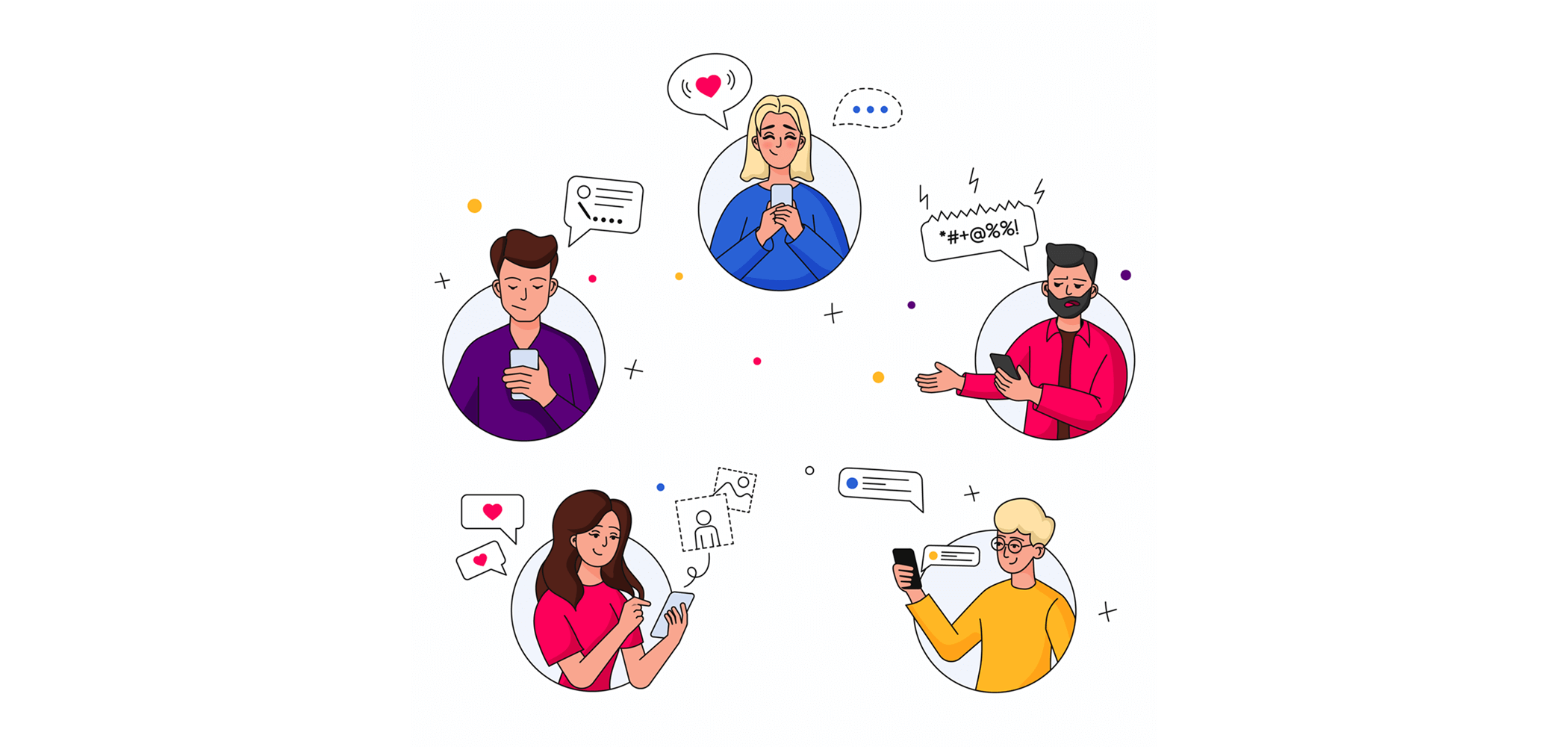Contents
One of the surprising and amazing things about the internet, especially when we’re talking about things involving user-generated content, is how many ideas become well-established parts of society before we even fully understand them.
Online dating is a perfect example. While the first big dating site was launched more than 25 years ago, Tinder – which broke new ground for dating apps – only turned 10. And yet, it’s already perhaps the main way of meeting a partner, with a Stanford study in 2019 found that 39% of heterosexual couples met online.

Despite its massive popularity, we’re not necessarily wise to everything dating apps have to throw at us or aware of how they’re changing society or us. Unusual and potentially dangerous trends are always emerging from online dating and never fail to claim headlines in the media: Stylist, for example, recently described voicefishing as “the freaky new dating trend we’re trying to get our heads around.”
The challenge for apps
On the one hand, then, there’s frequent discussion of the dangers that online dating can pose, but, on the other hand, people clearly keep coming back anyway to enjoy the benefits of digital matchmaking. Dating apps clearly have a job to do to make sure that people are empowered to be flirty, but not dirty; daring but not dangerous.
That work all comes down to steering user interactions in the right direction, and that’s not always easy. The difficulty is illustrated by a study that recorded how dating app users speak about their experiences. Direct quotes from study participants show how dating apps – like many online venues – develop their own language, codes, and norms:
- “I get him a different picture and I make his profile his “buyer” – he didn’t have a buyer. I made his profile a buyer, and said “You can always go back” and it blew up!”
- “…sometimes they’ll write “say orange if you’ve read this.” And so you’re expected if you match, the first thing you say to them is orange to show that you’ve actually read through it.”
If you don’t know what some of these phrases mean, don’t worry: that’s exactly the point! We know that dating app users successfully find partners and have fun doing it – but while they’re doing so, they also have to navigate a fast-changing environment of language and interaction.
The moderation response
What is a challenge for users, here, is just as much of a challenge for content moderation strategies: both human moderators and automated tools need to constantly learn, adapt, and evolve in order to keep users safe. At the same time, though, the freedom to be playful and inventive in how you speak and interact with others is an important part of how dating apps work for people. While the medium might be digital, it’s still (hopefully) a real person on the other side of the screen – and, just as with bumping into someone on the street or meeting them in a bar, the element of surprise and fun is essential.
There’s a fine line to tread when moderating dating apps. We need to react quickly to new threats but intervene gently; be strong in safeguarding users but permissive about how they act; and listen and learn attentively about how people interact. Needless to say, it’s a job that takes real expertise.
What do you think? Do dating apps get it right when protecting and helping their users? How can we respond to the ways language is evolving online?
And what is a “buyer”, anyway?
Ahem… tap, tap… is this thing on? 🎙️
We’re Besedo and we provide content moderation tools and services to companies all over the world. Often behind the scenes.
Want to learn more? Check out our homepage and use cases.
And above all, don’t hesitate to contact us if you have questions or want a demo.




